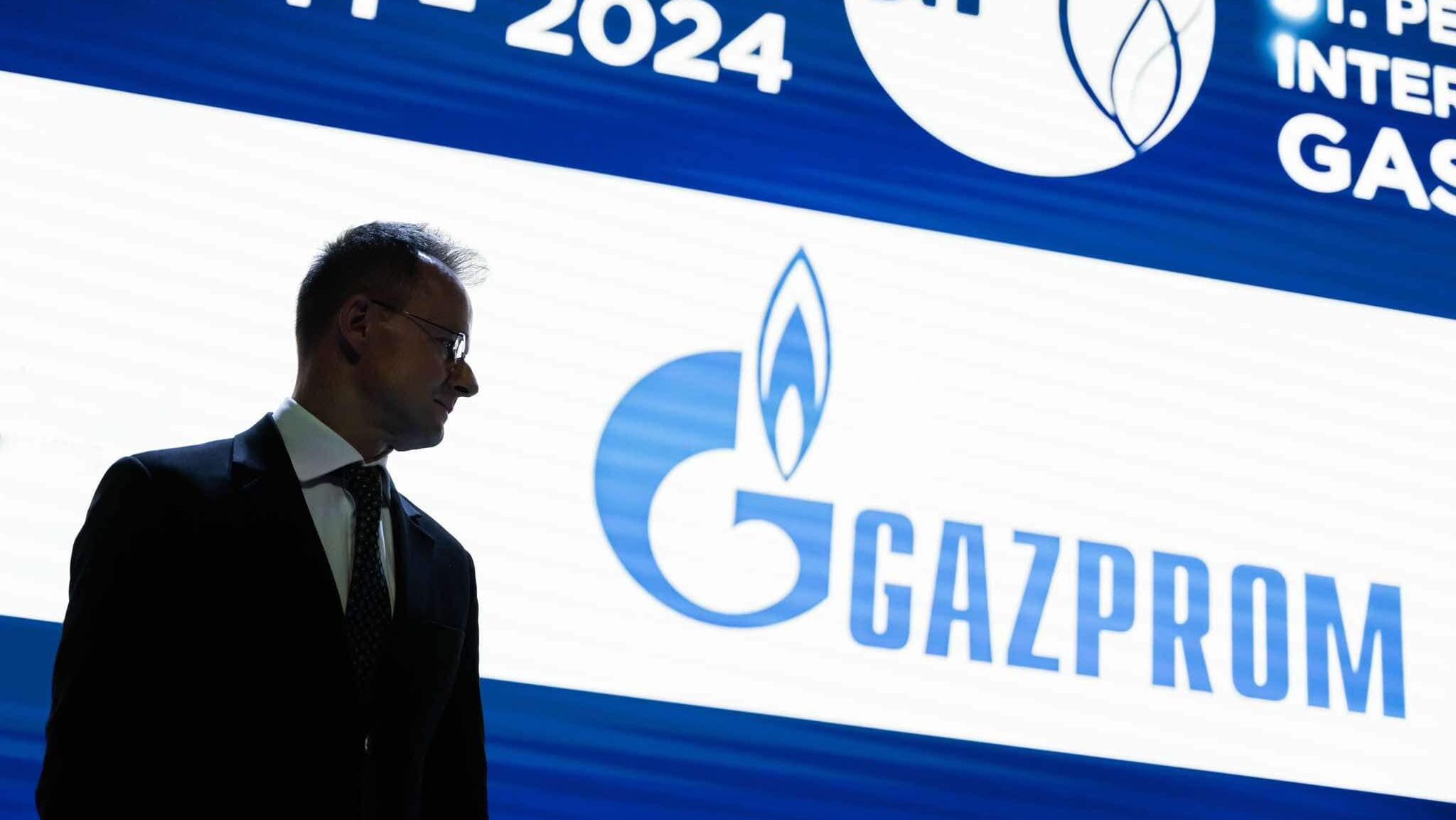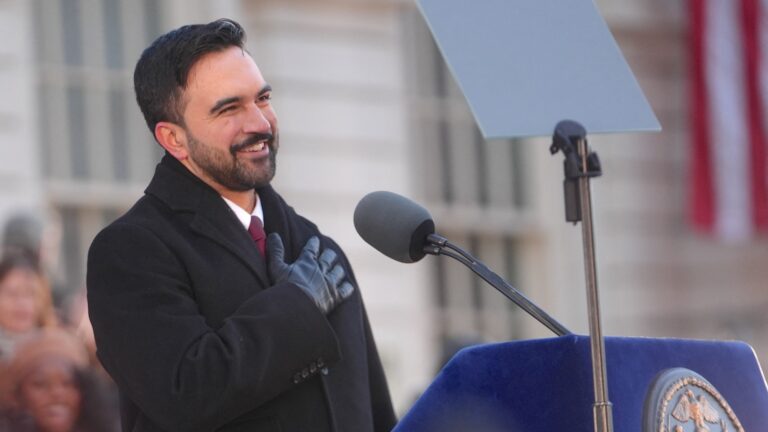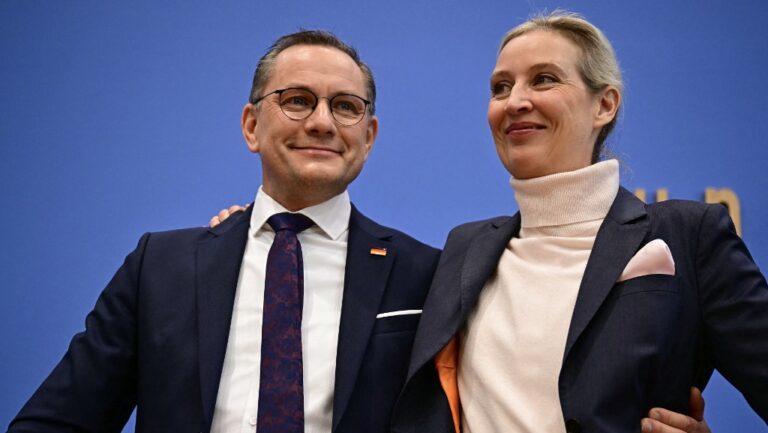The past week has been eventful for Hungarian politics, as well as for the foreign actors who occasionally—and increasingly—assume the role of Hungarian opposition politicians. First, Prime Minister Viktor Orbán’s presentation of the Hungarian EU Presidency programme was turned into a political and personal smear campaign in the European Parliament, led by Commission President Ursula von der Leyen, who attacked Hungary using left-wing propaganda narratives. Next, US Vice President and Democratic presidential candidate Kamala Harris referred to Viktor Orbán as ‘dictator and a murderer.’ And finally, as expected, US Ambassador to Hungary David Pressman once again interfered in Hungary’s domestic affairs—predictably siding with those hostile to the Orbán government.
On Thursday, Hungarian Minister of Foreign Affairs and Trade Péter Szijjártó travelled to Saint Petersburg to attend the International Gas Forum, where he held talks with the leaders of Gazprom, a key player in Hungary’s energy supply. The timing of the visit, coming just a day after Viktor Orbán’s contentious debate in Strasbourg, added a layer of significance and heightened expectations of potential criticism directed at the Hungarian government.
That had already begun on the ground, when the reporter of German ZDF asked Szijjártó: ‘Can we understand your presence here as yet another Hungarian provocation towards Brussels? Or what is the reason for your participation?’ The question itself was absurd, as Hungary is a sovereign state, and any visit by one of its ministers can only be considered a provocation by the most ardently Hungarophobic Brussels bureaucrats. Szijjártó underscored this point in his response, setting the journalist straight: ‘What kind of provocation? It is the sovereign right of a country to decide which events its ministers attend. We are not a “jawohl” nation, so no one can dictate to us—not the German government, nor the German Greens,’ the foreign minister stated firmly.
Shortly afterwards, David Pressman took aim at Szijjártó on social media. ‘The Foreign Minister of Hungary travelled to Russia for the 11th time since Russia’s full-scale invasion of Ukraine—in pursuit of profit, not peace,’ he wrote in a post on X. It’s impressive to see that the ambassador is tracking and cataloguing the foreign visits of Hungarian ministers so well, even though it’s not within his remit. Well done for the diligence!
The Foreign Minister of Hungary today travelled to Russia for the 11th time since Russia’s full-scale invasion of Ukraine – in pursuit of profit not peace. pic.twitter.com/wmHCzIeAz4
— Ambassador David Pressman (@USAmbHungary) October 10, 2024
One could ask, however, what exactly Szijjártó travelled to St. Petersburg to ‘pursue.’ Anyone even slightly familiar with Hungary’s energy policy and the composition of its energy supply can quickly deduce the answer: the foreign minister did not travel to Russia for profit, and in this case, not for peace either, but rather to ensure Hungary’s energy security. This is the same energy security that was recently put at serious risk by Ukraine, with the silent approval of Brussels and the United States.
‘We consider it the duty and responsibility of the Hungarian state to ensure the country’s long-term energy supply and to guarantee that prices remain competitive. Cooperation with Gazprom provides not only competitive pricing but also energy security,’ Szijjártó highlighted in St. Petersburg. He added that, based on the long-term contract with the gas supplier and additional trade agreements, 60 per cent of Hungary’s annual gas consumption is already secured in storage.
‘Cooperation with Gazprom provides not only competitive pricing but also energy security’
It is particularly hypocritical to accuse Hungary of pursuing profit, especially after Viktor Orbán exposed the duplicity of Western states during Wednesday’s debate. He pointed out that many EU countries are secretly conducting business with Moscow through intermediaries in Asia. Orbán highlighted that EU exports to certain Central Asian countries have increased by a billion dollars per month compared to pre-war levels, enabling German, French, and Spanish companies to circumvent sanctions. ‘Since the outbreak of the war, Western countries have actually purchased $8.5 billion worth of Russian oil through Turkish or Indian refineries,” he noted, adding that this behaviour is pure hypocrisy. ‘In 2023, the West bought 44 per cent more Russian oil than in the previous year,’ Orbán nailed down. Not to mention that the United States purchased record amounts of Russian uranium in the year following the outbreak of the war.
But since Mr Pressman is so keen on keeping count, let’s do some calculations of our own. How many times has the US ambassador intervened in Hungary’s internal affairs through statements, social media posts, or other means? The figure is likely well over eleven. And how many times has the US President or Vice President labelled Hungary’s democratically elected prime minister a dictator? The answer is twice—which is two times more than it should ever be.
It is evident that Hungarian–American relations have reached an impasse, hitting rock bottom due to the hypocritical policies of the Biden administration and statements made by Democrats. At this point, there is little more to be done except to await the outcome of the upcoming presidential elections, which are less than a month away. After that, it will be time to clear the air.
Related articles:







